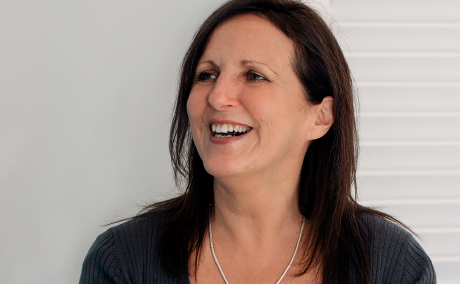Clare Hill, UK CEO of Sysdoc, describes 2016 as a year of investment in propositions and ways of working to support the emerging needs of clients and employees. “We embedded and built on our 2015 growth by putting in place changes needed to enhance future performance.” Clare describes a process of reviewing the consulting practice’s value set, resetting it and incorporating it in everything Sysdoc does. “Five core values support our vision to 2020 and underpin everything we do internally and externally.”
That value-driven approach to growth, in turn rests on carefully constructed organisational foundations. “The most important of these is people. We aim to be a best in class employer. We have recently appointed a Head of People to lead our reimagining of the future of work. We also want to employ people who live and breathe our values. A real ‘Sysdocer’ is a rare thing. They have a can-do, challenging attitude, as well as deep consulting expertise. We can find these attributes in new recruits, but sometimes have to enhance core consulting capabilities, like client-sensitivity or, especially in younger consultants, presentation skills. But what our successful new recruits – and increasingly all of our workforce – demand is a modern approach to the workplace.
“In response, we need to be completely up-to-date in how we develop people. This includes flexible and digitally enabled ways of working. We are in the process of digitising our appraisal process, enabling real time and continuous feedback. But most importantly it is about a ‘whole life’ approach, where people can bring their whole person to work and can also get meaning and satisfaction from what they do for us.”
Simultaneously, Sysdoc has refreshed its propositions. The company’s heritage is in aviation, giving it a particular emphasis on high-quality processes, decision making and continuous improvement. Clare sees recent developments in client markets as simultaneously reinvigorating and changing the Sysdoc value proposition. “Clients need end to end transformation. Some of the current emphasis on process simplification and automation recalls the requirements of the early 2000s. The principles we applied to our transformation work with Cable and Wireless many years ago are again relevant.
“However, the focus of many of the processes involved and the transformational goals themselves are changing rapidly. We’re helping enable comprehensive digitisation in clients. Many processes can now be robotised and automated, especially certain aspects of finance and other transactions. ERP systems are now Cloud-based. Value is created through Internet of Things and there’s potential for greater understanding of performance information, as well as supply chains and customer needs, through data analytics. So, the target operating models (TOMs) we help clients develop and migrate towards are changing. The new TOMs must be much more customer focused than ever before, as well as more agile, fluid and adaptable.”
To do this, Clare suggests, Sysdoc must be permanently vigilant about its own approaches to quality. “We must confront our own challenges. The nine principles of Consulting Excellence, with their emphasis on ethics, client value and people development, reflect what we aim to do as a company. They are consistent with our value set. And for us, the principles are interdependent. If you have a value-driven growth strategy, then you must embed those values in everything you do, including how your people work together and with clients, how you deploy metrics, uphold delivery standards, and conduct performance reviews. We have devoted a lot of time to developing this culture and it’s reaping rewards.”
Sysdoc is investing in its new management team through leadership coaching, both individually and as a whole. “We are also employing more people than ever before. The next stage of our growth challenge will be extending our client portfolio. Traditionally much of our new business has come from existing clients and networks. Now we are looking to spread our net more widely.”
Clare is pragmatic about Brexit. “Brexit will change business assumptions. It will drive some fundamental reviews of where businesses operate and trade, and how they deploy skilled human and automated resources to create value. This will generate opportunities for consultants like us who specialise in helping clients transform safely, simplify processes, manage risk and engage people in new ways of working.”
Technological disruption, Clare suggests, is felt by clients and consultants most acutely when they underestimate the impact on their people. “In an ERP implementation, for instance, or other major change programme, there is often a lack of focus on the end- to-end business impact, with all eyes firmly set on getting the system live. Combined with very real budget and time pressures, the large investment in technology can mean that the people dimension – how staff will actually use the new capability, how it will add value to their working lives – can get squeezed out of the equation. In 2016, we invested in rethinking our learning proposition to align with our clients as they move from traditional approaches to education, systems and processes to embracing new technologies, mobility and agility. Accordingly, we’ve developed new, digitally enabled methodologies for learning, designed to engage users. They deploy game theory and intelligent uses of data to measure confidence and competence in learning.”
Sysdoc is assessing how far they can exploit technology to change the process of consulting delivery, on many fronts. “We’re changing our toolkit. Some of this is about partnering, such as working with Concentra on a data driven approach to organisational design. Some of this entails new investments. But it is also about enhancing our existing capabilities. We are passionate about the value of good organisational information. We already have a first-class Knowledge Portal, which provides intuitive access to end-to- end process, procedures, learning materials and collaboration zones from any global location.”
The first major portal Sysdoc built for IBM was awarded a gold Gartner award back in the early 2000s. “We are now deploying this approach through SharePoint- based client services. It’s a real business differentiator for us, enabling cutting-edge operating models.”

